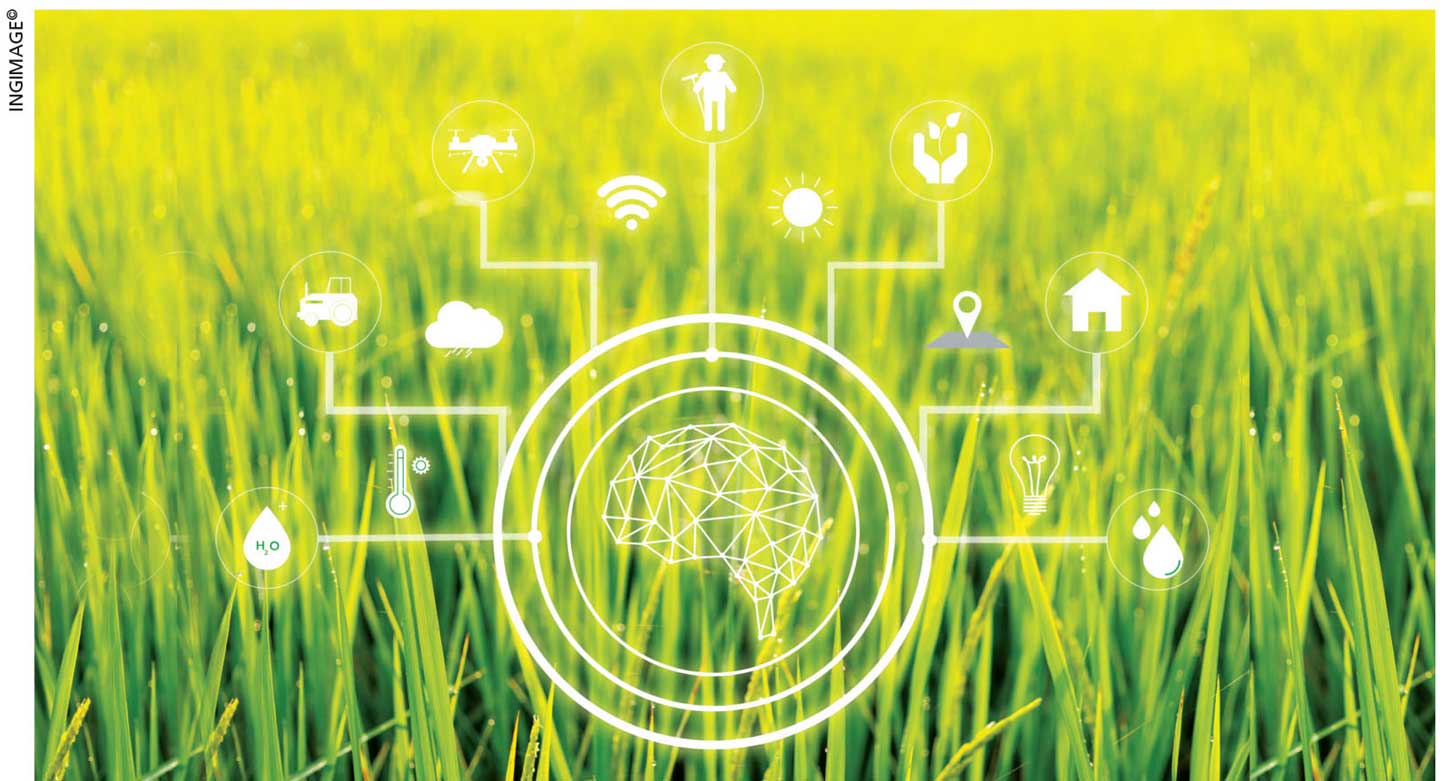AGRICULTURE SECTOR
CLIMATE-SMART FARMING
Akila Wijerathna explains the dynamics of an integrated approach to farming
Climate change impacts agriculture significantly. As temperatures rise and weather patterns become more unpredictable, farmers face numerous challenges – such as droughts, floods and other extreme weather events – that can substantially reduce crop yields and threaten food security.
Changing weather patterns can also lead to the spread of pests and diseases, and change the timing of planting and harvesting seasons.
The impact of climate change on agriculture is a critical concern for food security, economic stability and the wellbeing of communities that rely on agriculture as their primary source of income.
Understanding its effects on agriculture and developing strategies to mitigate these is necessary to maintain food security, and ensure sustainability of agricultural practices in the face of changing climatic conditions.
‘Climate-smart agriculture’ (CSA) seeks to address the challenges posed by climatic changes, and promote sustainable and resilient agricultural practices.
It focusses on three key objectives: reducing the environmental and climatic impacts of agricultural activity; developing adaptive food production methods and crops that are better suited to changing weather patterns; and reducing and/or removing greenhouse gas emissions where possible.
This approach involves the integration of various agricultural practices such as conservation agriculture, agroforestry and improved livestock management with climate mitigation and adaptation strategies.
The adoption of CSA practices is becoming increasingly important to sustaining the agriculture sector and achieving food security for all.
Climate change can also exacerbate existing challenges faced by smallholders such as soil degradation, pests and diseases, and market access issues. It can lead to reduced crop yields and quality, increased pest and disease pressure, and less availability of water and pastures for livestock.
Smallholder agriculture is highly vulnerable to the impacts of climate change, and adaptation measures are urgently needed to enhance its resilience and sustainability.
This requires not only technological solutions but also institutional and policy support, to address socioeconomic and political barriers that hinder the adoption of climate resilient practices by smallholder farmers.
Technological innovation has become a key element of CSA as it offers potential solutions to address the challenges posed by climate change.
Developing and adopting advanced technologies – such as precision agriculture, climate resilient crop varieties, efficient irrigation systems, agroforestry, digital platforms and climate smart livestock management – can help farmers adapt to climatic variations and strengthen the sustainability of their farming systems.
These technologies can lead to more efficient use of resources, improved crop yields and reduced greenhouse gas emissions from agriculture. However, it is important to ensure such innovations are accessible and affordable for smallholder farmers – and that they are implemented in socially and environmentally responsible ways.
Therefore, a multidisciplinary approach is required to promote the development and adoption of technological innovations in climate-smart agriculture.
CSA is a complex and multifaceted approach to agricultural development that requires a multidisciplinary team effort to be successful. Such a team would include experts from diverse fields such as agronomy; hydrology; ecology; economics; and climate, soil and social sciences.
They can collaborate to design and implement CSA strategies, tailored to specific farming systems and local conditions. For example, agronomists can work with farmers to identify and adopt improved crop varieties and soil management practices that enhance productivity and reduce greenhouse gas emissions.
Climate scientists can provide data on weather patterns and projections, to complement decision making on crop choices and irrigation practices.
Soil scientists can assess soil health – and develop practices that enhance soil organic matter, water retention and nutrient cycling. Hydrologists will be able to develop water management and irrigation strategies that can adapt to changing weather patterns. And ecologists can help design and implement agroforestry and other practices that promote biodiversity and ecosystem services.
Economists would be able to analyse the costs and benefits of climate-smart agriculture practices, and shape policy and institutional changes needed to support their adoption. Finally, social scientists can help understand the social and cultural factors that influence farmers’ decisions to adopt CSA practices, and work to promote their acceptance and uptake.
By combining expertise from various fields, such a team will be able to design and implement CSA practices that are sustainable, resilient and socially acceptable, and promote the long-term viability of farming systems.
A multidisciplinary approach is required to promote the development and adoption of technological innovations in climate-smart agriculture





